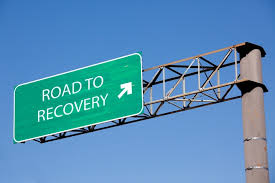A Pardon? No sir; Recovery in Action
Wednesday, January 29th, 2025Addiction and Recovery
By Bob Gaydos
It isn’t every day that you get to see recovery in action in a meaningful way other than someone not abusing alcohol or other drugs, which in itself is no small feat. When it does happen, though, the message is powerful.
A couple of days after Trump pardoned all the rioters involved in the January 6, 2020, insurrection at the U.S. Capitol, one of those pardoned appeared on a TV news show to explain why she was turning down the pardon.
My ears perked up. “It’s an insult to the Capitol Police, to the rule of law and to the nation, the woman said. I did it. I was wrong. If I accept a pardon, I’m continuing their propaganda, their gaslighting and all their falsehoods they’re putting out there about Jan. 6.”
The woman, who was called “MAGA Granny” in some news reports at the time, wasn’t done.
“I’ve been sober more than 40 years,” she said. “I’m a member of a 12-step group. I look at my behavior and when I’m wrong I admit it. I was wrong.”
That was Pam Hemphill, 71, of Boise, Idaho, doing a tenth step on live TV. For those unfamiliar with it, the 10th step of Alcoholics Anonymous, which created the 12-step recovery program, and every other group which adopted them, states: “Continued to take personal inventory and, when we were wrong, promptly admitted it.”
Since Hemphill served 60 days in prison after pleading guilty for her part in the insurrection, one might question the word “promptly,” but in her case it seems to have happened as soon as she came to the realization, as she put it, “I was part of a cult.”
She said that she no longer supports Trump or believes his lie that the 2020 election was stolen. A retired alcohol and drug counselor, Hemphill said, “I was not a victim of Jan. 6; I was a volunteer.”
She said she has received death threats for expressing her regrets about her actions on January 6 and that she has stopped trying to convince her former Maga allies that everything Trump said was a pack of lies, including that the election had been stolen.
“This is part of my amends; to stand up to the facts of what really happened on Jan. 6, to stop the gaslighting and all the lies that have been perpetrated out there for their own benefits,” Hemphill further said, thereby putting AA’s eighth and ninth steps into action.
Eight: “Made a list of all persons we had harmed and became willing to make amends to them all.”
Nine: “Made direct amends to such people wherever possible, except when to do so would injure them, or others.”
Making amends to the Capitol police and the rest of the nation on live TV would seem to cover eight and nine.
Those unfamiliar with the philosophy of the 12-step program might wonder what any of this has to do with not drinking. Well, Hemphill has been through quite an ordeal, from participating in a riot at the U.S. Capitol to serving 60 days in prison (which she says was filthy), to going on TV to accept responsibility for her actions, express regret and reject a pardon and denounce the lies and cult of Trump.
That’s a lot for anyone. Apparently, she came through it all without drinking or drugging and, in effect, a changed person.
The 12th step speaks of “having had a spiritual awakening.” AA members say this can happen at any time. Sometimes more than once. The step also speaks of “practicing these principles in all our affairs.”
Ah so. There’s Pam Hemphill’s recovery program in a nutshell, in meaningful action and in public. Without mentioning any group by name. This is what AA means when it describes itself as a program of attraction, not promotion.
Hemphill also says she voted for Kamala Harris, which was definitely the sober thing to do.







